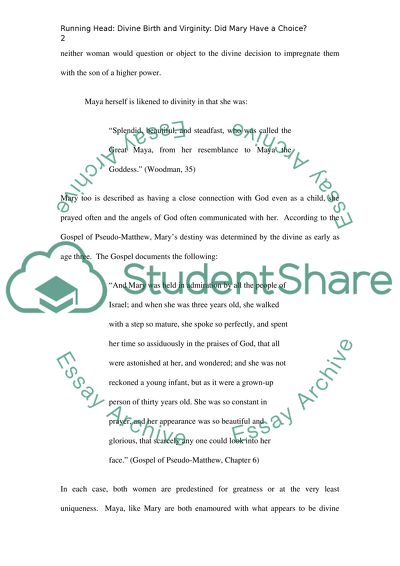Cite this document
(Divine Birth and Virginity Assignment Example | Topics and Well Written Essays - 1250 words, n.d.)
Divine Birth and Virginity Assignment Example | Topics and Well Written Essays - 1250 words. Retrieved from https://studentshare.org/religion-and-theology/1547069-does-mary-have-a-choice-in-the-matter-of-her-pregnancy-do-you-agree
Divine Birth and Virginity Assignment Example | Topics and Well Written Essays - 1250 words. Retrieved from https://studentshare.org/religion-and-theology/1547069-does-mary-have-a-choice-in-the-matter-of-her-pregnancy-do-you-agree
(Divine Birth and Virginity Assignment Example | Topics and Well Written Essays - 1250 Words)
Divine Birth and Virginity Assignment Example | Topics and Well Written Essays - 1250 Words. https://studentshare.org/religion-and-theology/1547069-does-mary-have-a-choice-in-the-matter-of-her-pregnancy-do-you-agree.
Divine Birth and Virginity Assignment Example | Topics and Well Written Essays - 1250 Words. https://studentshare.org/religion-and-theology/1547069-does-mary-have-a-choice-in-the-matter-of-her-pregnancy-do-you-agree.
“Divine Birth and Virginity Assignment Example | Topics and Well Written Essays - 1250 Words”, n.d. https://studentshare.org/religion-and-theology/1547069-does-mary-have-a-choice-in-the-matter-of-her-pregnancy-do-you-agree.


